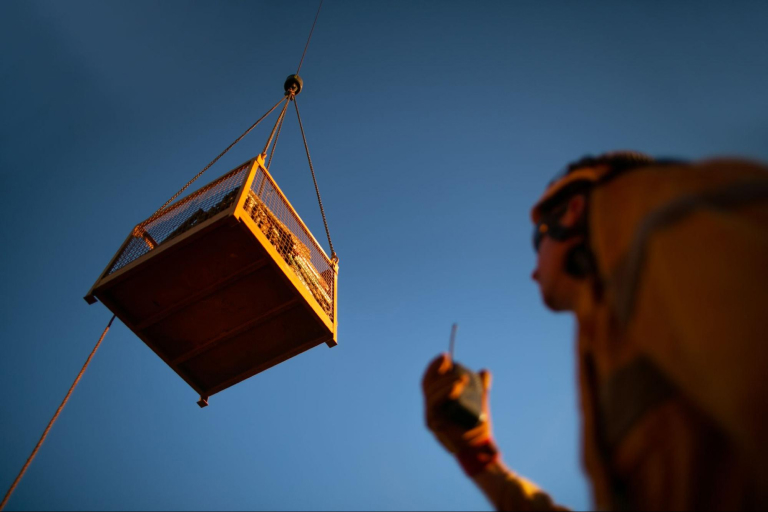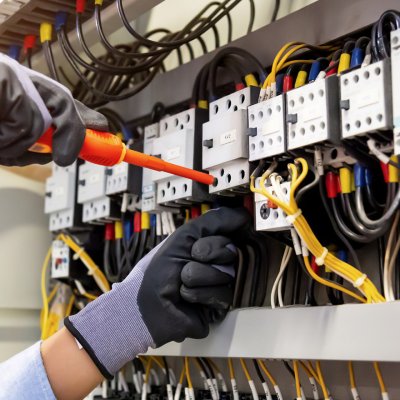Top 10 Heavy Equipment Safety Tips
Bulldozers, backhoes, excavators – these are just some of the heavy equipment used in construction.
They are used in nearly every type of construction project. However, their sheer size makes them extremely dangerous when improperly used. In fact, construction sites see 20.2 fatalities for every 100,000 workers every year.
Falls top the list for the cause of death, followed by being struck by moving vehicles and heavy equipment operations.
Although heavy equipment operators are usually experienced, accidents can and still do happen. Reviewing standard operating rules and these top 10 heavy equipment safety tips should help keep you and your crew safe:
1. Inspect Heavy Equipment Before Operating
Check the oil levels, hydraulic hoses, and other components of the heavy equipment before operating it.

2. Proper Mounting and Dismounting
Falls happen when a worker steps on or off heavy equipment. More than a handful have been injured or killed because of improper mounting and dismounting.
Remember to maintain three-point contact when getting on or off heavy equipment. Use both hands, and one foot or two feet and one hand. Never jump.
3. Be Aware of Your Surroundings
Take time to identify all the power lines, gas lines, hydro wires, metal rods, low clearance obstructions, etc. within the vicinity. They should be marked with colour-coded paint or flags.
Also take note of who, and where, the people are around you. Make sure your path is clear before operating the machinery. Anticipating hazards before they happen is the best way to prevent accidents.
4. Use Equipment as Intended
Each piece of equipment is designed to do a specific purpose. Never use a crane as an excavator or lift workers in the bucket of a wheel loader. Pick the right equipment for the right task.
5. Wear a Seatbelt
It may seem unnecessary to wear a seatbelt in a slow-moving vehicle, but it can help keep you safe during a rollover. The only time seatbelts aren’t required is if the machinery is designed to be operated while standing up.
6. Avoid Blind Spots
Construction vehicles and heavy equipment have blind spots that limit the visibility of the driver. Before starting the equipment, make sure there’s no one standing on those blind spots.
If you need to physically get out of the machine to know for certain, do so. You can also enlist a spotter to help direct you. Remind other workers to wear reflective safety vests at all times and to make eye contact with you before approaching the machine.
7. Watch Load Limits
Various machines have different load limits. Know the load limit of the machine you’re going to operate and obey it. Never carry more than what your machine is capable of.
8. Use Radio or Hand Signals to Communicate
It’s crucial for heavy equipment operators to have constant communication with the ground crew and their supervisors. Construction sites are loud, so two-way radios help ensure everyone on the site knows what’s happening.
If you don’t have a two-way radio, use a spotter who has been trained on proper hand signals. This will reduce the odds of having someone be at the wrong place at the wrong time.

9. Conduct Routine and Daily Inspection
Performing routine and daily inspections should help ensure that what was properly running yesterday will also do the same today. Create a daily heavy equipment safety checklist on what parts to inspect. Create a weekly and monthly inspection plan as well.
10. Recognize Your Limits
Work hard, but don’t overwork yourself. If your equipment has limits, so do you. An operator who is physically, mentally, and emotionally exhausted makes poor judgment calls and will be a serious threat to themselves and others. Notify your supervisor if you don’t think you’re capable of doing the work.
Protect Your Heavy Equipment From Accidents
We hope these heavy equipment safety tips keep you safe throughout the course of your project. However, in order to get maximum protection, construction equipment insurance is a must.
Whether you own, rent, or borrow heavy equipment, they are worth protecting because you rely on them to run your business. For quotes and inquiries about our construction equipment insurance, contact us today.
BACK TO ALL ARTICLES





Leave a Reply
Required fields are marked *
Leave a Comment